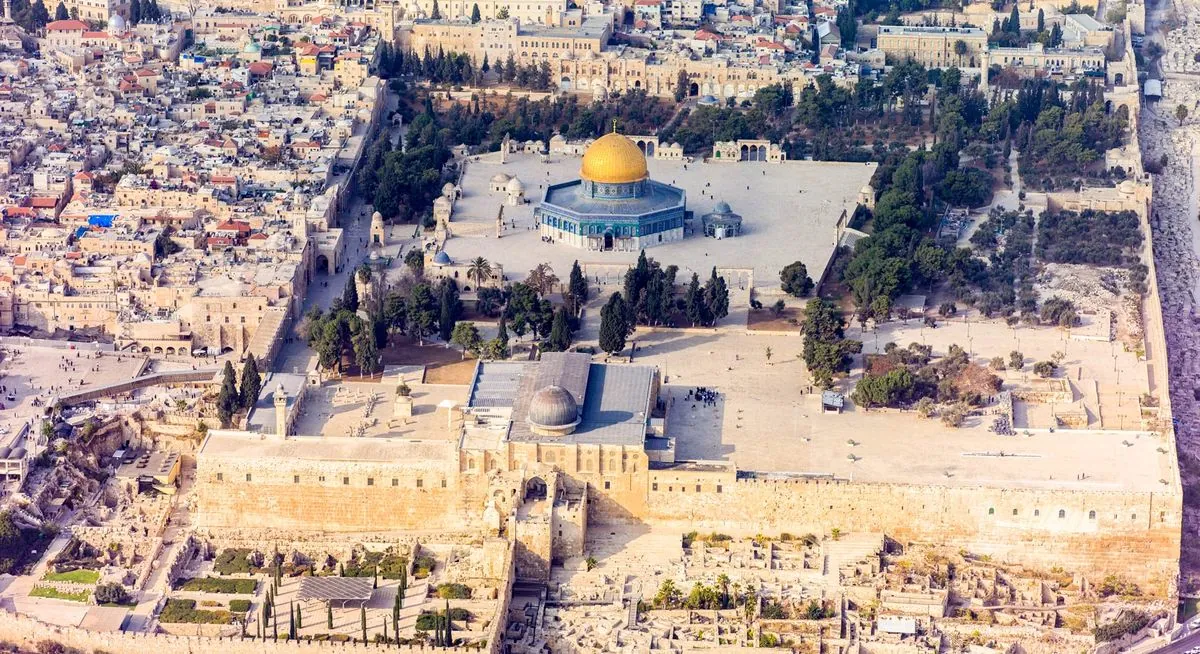Itamar Ben-Gvir, Israel's national security minister, has ignited controversy with recent statements regarding prayer rights at the Temple Mount, a site of immense religious significance in Jerusalem's Old City. The minister's comments have drawn criticism from various quarters, including coalition colleagues and religious leaders.
The Temple Mount, known as Haram al-Sharif in Arabic, has been under Israeli control for approximately 57 years, following the Six-Day War in 1967. An agreement established that year between Jordan and Israel permits Jewish visits to the site but prohibits Jewish prayer. This arrangement has been a cornerstone of maintaining delicate interfaith relations at one of the world's most contested religious sites.
In a recent radio interview, Ben-Gvir expressed his desire to alter the status quo at the Temple Mount. He stated that if it were up to him, the Israeli flag would be raised at the site and a synagogue established there. These comments have raised concerns about potential escalation of tensions in the region.
The Temple Mount, measuring about 35 acres, holds profound significance for both Judaism and Islam. It is the holiest site in Judaism, believed to be where the First and Second Temples once stood. For Muslims, it is the third-holiest site, home to the Al-Aqsa Mosque and the Dome of the Rock, one of the oldest examples of Islamic architecture.
Benjamin Netanyahu, Israel's Prime Minister, swiftly responded to Ben-Gvir's statements, affirming that there would be no change to the existing arrangement. Yoav Gallant, the defense minister, criticized the comments as "unnecessary and irresponsible," warning that they could endanger Israel.
Ultra-Orthodox Jewish leaders, who traditionally prohibit their followers from visiting the Temple Mount due to religious laws, have also voiced their opposition to Ben-Gvir's stance. They view his frequent visits to the site as a violation of Jewish law.
Moshe Arbel, the interior minister from the ultra-orthodox Shas party, urged Netanyahu to take immediate action to address Ben-Gvir's comments. Arbel expressed concern that such "irresponsible statements" could jeopardize Israel's strategic alliances with Muslim countries, particularly those involved in efforts against Iran.
The controversy surrounding the Temple Mount is not new. The site has been a flashpoint for violence in the past, including during the Second Intifada in 2000. Its administration by the Jerusalem Islamic Waqf, a religious trust, and the restrictions on non-Muslim prayer and archaeological excavations, underscore its sensitive nature.
As tensions persist, the international community continues to recognize the historical and cultural significance of the area. UNESCO has designated the Old City of Jerusalem and its walls, including the Temple Mount, as a World Heritage Site.
The ongoing debate over prayer rights at the Temple Mount reflects the complex interplay of religious, political, and historical factors in the region. As stakeholders navigate these sensitive issues, the world watches closely, hoping for solutions that respect the site's importance to multiple faith traditions while maintaining peace and stability in this volatile region.
